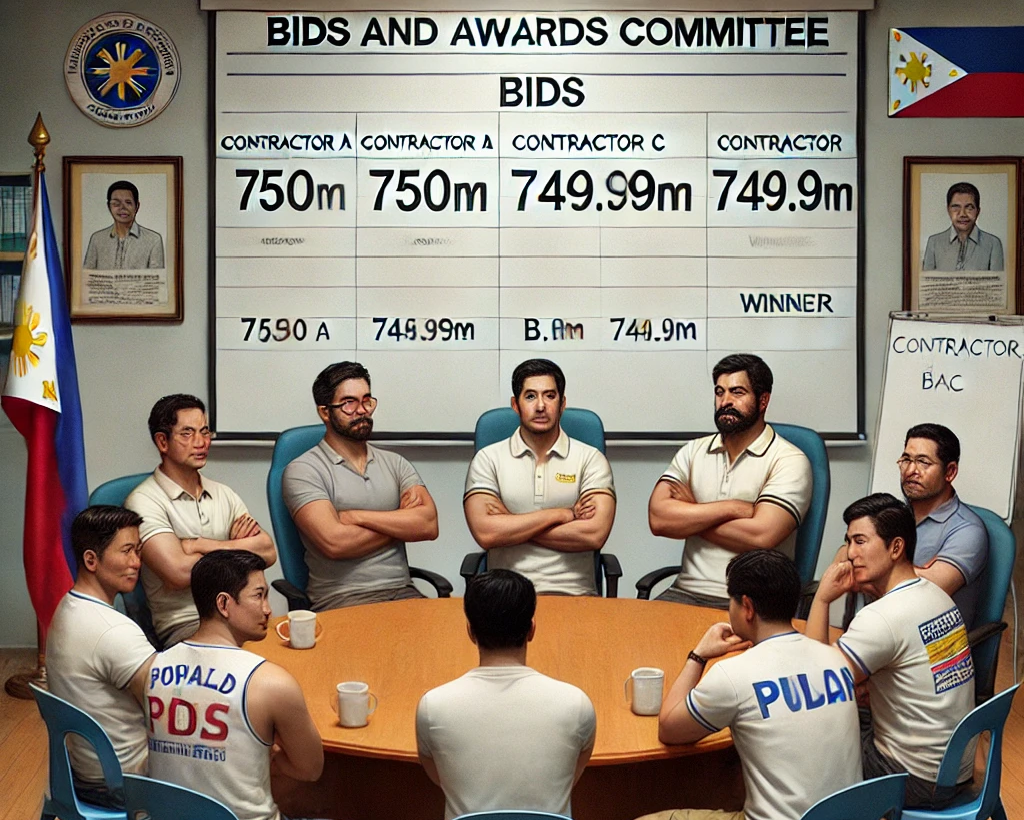Exploring Hypothetical Collusion in Public Bidding: Implications and Preventive Measures
The Philippine Government Procurement Reform Act (RA 9184) mandates that public procurement be competitive, fair, and transparent, ensuring that government projects are awarded based on the best value for taxpayers. However, imagine a scenario where contractors in a locality, instead of competitively bidding, might engage in a form of collusion that could undermine the bidding process. This "what if" perspective explores what might happen if contractors were to bypass fair competition, the characteristics of such collusion, and the measures that could  help prevent such practices.
help prevent such practices.
Hypothetical Collusion: How Might It Work?
In this scenario, contractors could develop a network or alliance, where they appear to compete for public projects but in reality have prior arrangements determining the outcome of each bid. They might agree in advance on who will "win" certain projects, coordinating their bids to create a narrow pricing range close to the Approved Budget for the Contract (ABC). With minimal differences in their bids, it may give the appearance of competition while keeping profits maximized by bidding just below the ABC.
Some of the possible characteristics of collusion could include:
- Bid Rotation: Contractors may take turns winning contracts, ensuring each member of the group secures a fair share of the available projects.
- Price Fixing: Coordinated bids that fall close to each other or just under the ABC can suggest collusion, especially when the bid amounts are regularly clustered in a narrow range.
- Market Division: Contractors might split geographical areas or project types amongst themselves to reduce the risk of underbidding each other.
Potential Impacts of Collusion
If collusion were to occur, several issues could undermine the objectives of RA 9184:
- Reduced Competition: Collusion stifles genuine competition, which is intended to deliver the best value for government projects. Instead, pre-arranged bids could lead to inflated project costs.
- Resource Misallocation: Since projects are not awarded based on merit, resources might be allocated to contractors who may not be the best fit for the job, affecting the quality and efficiency of public infrastructure.
- Erosion of Public Trust: When taxpayers suspect that government projects are subject to rigged bidding processes, trust in public institutions diminishes.
 Detecting Possible Collusion
Detecting Possible Collusion
Several indicators can suggest that collusion might be occurring, and these can be monitored to help maintain fair practices:
- Bid Pattern Analysis: Identifying repetitive patterns, such as certain contractors consistently winning by narrow margins or bids clustering just under the ABC, can indicate potential collusion.
- PhilGEPS and Data Analytics: Through the Philippine Government Electronic Procurement System (PhilGEPS), patterns of suspicious behavior can be flagged using advanced data analytics, helping to detect abnormalities in bid submissions and identify possible colluding contractors.
Preventing Collusion in Bidding Scenarios
To protect the integrity of the procurement process, here are some strategies that can strengthen safeguards against collusion:
- Whistleblower Protections: Encouraging insiders to report potential collusion by protecting whistleblowers is essential. Such measures make it easier for employees within the network of contractors to safely expose suspicious practices.
- Independent Oversight and Randomization: Independent oversight from third-party organizations and rotating project evaluators can disrupt collusive patterns and make it harder for contractors to predict or control bidding outcomes.
- Strict Conflict of Interest Checks: Requiring contractors to disclose professional relationships with other bidders or government officials can help uncover and prevent possible alliances from influencing bidding outcomes.
- Strong Penalties for Collusion: Blacklisting contractors involved in collusive practices and enforcing financial penalties can act as powerful deterrents, promoting compliance with RA 9184.
Takeaway Message
While this scenario of hypothetical collusion is speculative, it underscores the importance of vigilance in government procurement to uphold transparency and competitiveness. RA 9184 provides a strong framework, but continued improvements in oversight, the use of technology, and stringent enforcement are vital in ensuring that the spirit of fair bidding is maintained. By staying proactive, government agencies and stakeholders can protect public resources and maintain public trust in the procurement process.
